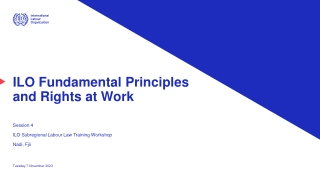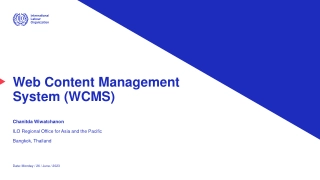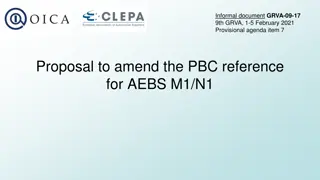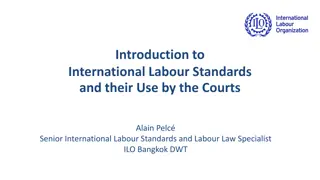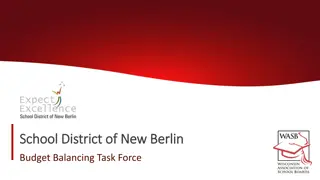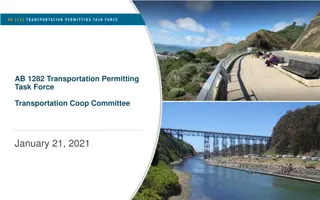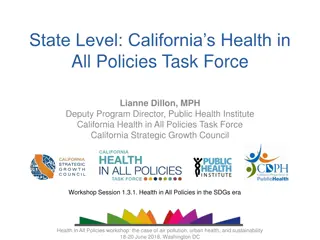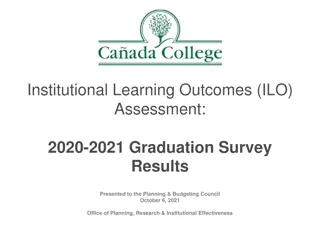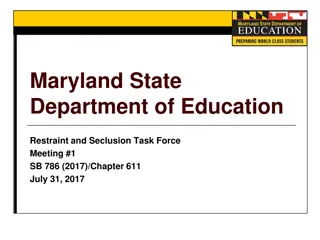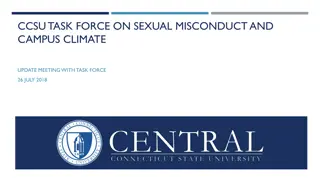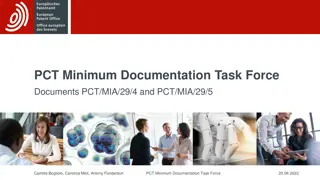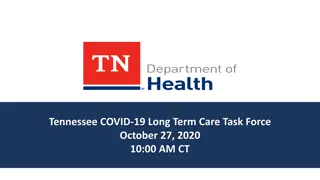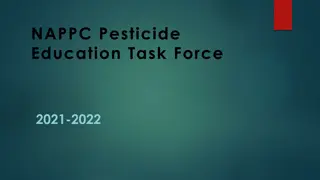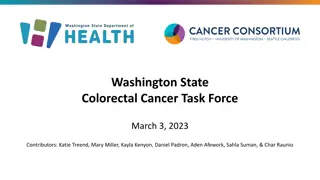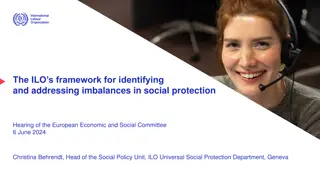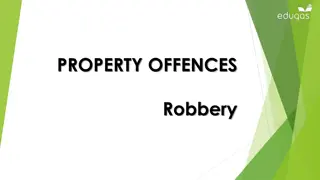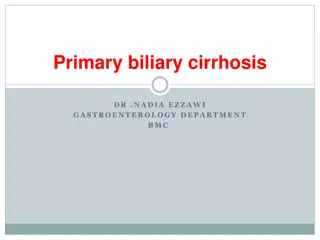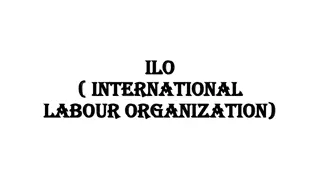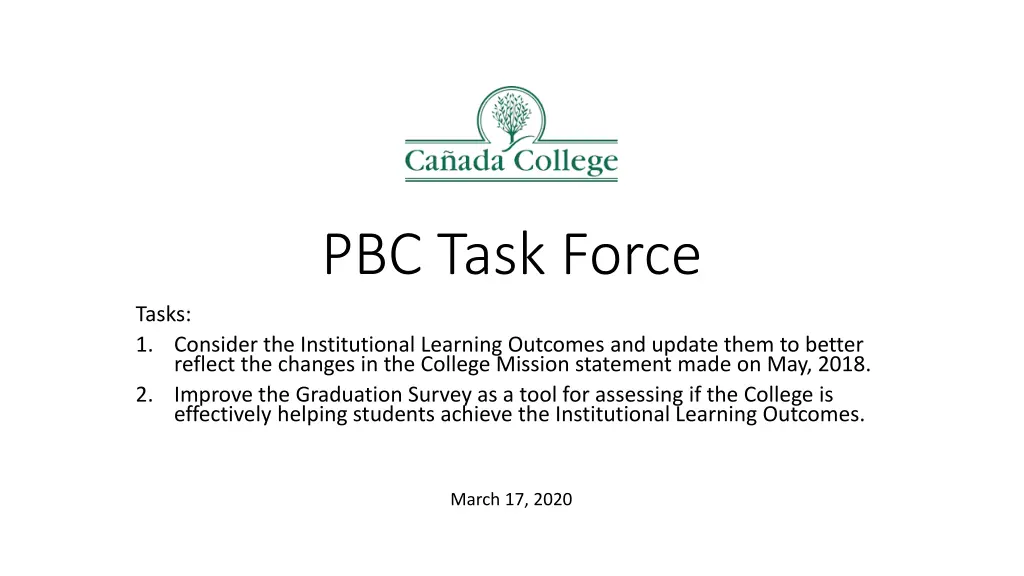
Update Institutional Learning Outcomes and Graduation Survey Recommendations
Explore the Task Force recommendations for updating Institutional Learning Outcomes and enhancing the Graduation Survey to align with the College's mission changes. The focus is on creating a more effective tool for assessing student success and addressing barriers to achieving educational goals.
Download Presentation

Please find below an Image/Link to download the presentation.
The content on the website is provided AS IS for your information and personal use only. It may not be sold, licensed, or shared on other websites without obtaining consent from the author. If you encounter any issues during the download, it is possible that the publisher has removed the file from their server.
You are allowed to download the files provided on this website for personal or commercial use, subject to the condition that they are used lawfully. All files are the property of their respective owners.
The content on the website is provided AS IS for your information and personal use only. It may not be sold, licensed, or shared on other websites without obtaining consent from the author.
E N D
Presentation Transcript
PBC Task Force Tasks: 1. Consider the Institutional Learning Outcomes and update them to better reflect the changes in the College Mission statement made on May, 2018. 2. Improve the Graduation Survey as a tool for assessing if the College is effectively helping students achieve the Institutional Learning Outcomes. March 17, 2020
Task Force Recommendations Achieve the intent of the changes to the mission statement by: Adding open response questions regarding barriers the student faced while at Ca ada (Q.13-14). Disaggregating the results of the (revised) Graduation Survey to determine if any student sub-populations are disproportionately impacted by barriers to achieving their Education Goals. Reduce the number of survey questions. Clearly indicate that the student is assessing whether or not they improved their abilities during their time at Ca ada College. Update race/ethnicity and gender response options. Future consideration: administer a similar survey to new, incoming students as well.
Draft Revised Graduation Survey: The PBC ILO/Graduation Survey Task Force met on March 10, 2020 and developed the following, revised survey.
Background information considered by the Task Force
Existing ILOs Critical Thinking Select, evaluate, and use information to investigate a point of view, support a conclusion, or engage in problem solving. Creativity Produce, combine, or synthesize ideas in creative ways within or across disciplines. Communication Use language to effectively convey an idea or a set of facts, including the accurate use of source material and evidence according to institutional and discipline standards. Community Understand and interpret various points of view that emerge from a diverse world of peoples and cultures. Quantitative Reasoning Represent complex data in various mathematical forms (e.g., equations, graphs, diagrams, tables, and words) and analyze these data to draw appropriate conclusions. The Institutional Learning Outcomes parallel our General Education Learning Outcomes which the Curriculum Committee APPROVED 11/18/11. The Institutional Learning Outcomes were revised and adopted by the ASGC (11/14/13) and Planning & Budgeting Council (11/20/13).
Changes to the Mission Statement NEW MISSION STATEMENT (as of May, 2018): Ca ada College provides our community with a learning-centered environment, ensuring that all students have equitable opportunities to achieve their transfer, career education, and lifelong learning educational goals. The College cultivates in its students the ability to think critically and creatively, communicate effectively, reason quantitatively, and understand and appreciate different points of view within a diverse community. OLD MISSION STATEMENT (prior to May, 2018): Ca ada College provides our community with a learning-centered environment, ensuring that students from diverse backgrounds have the opportunity to achieve their educational goals by providing transfer, career/technical, and basic skills programs, and lifelong learning. The college cultivates in its students the ability to think critically and creatively, communicate effectively, reason quantitatively to make analytical judgments, and understand and appreciate different points of view within a diverse community.
ILO Assessment Ca ada College assesses its Institutional Learning Outcomes (ILOs) on an annual basis in order to assure institutional effectiveness and promote continuous improvement. The college uses multiple means of assessment: 1. Data from the Community College Survey of Student Engagement (CCSSE) 2. Data from a survey of students petitioning to graduate with a degree or certificate 3. Analysis of student ePortfolios The results of these assessments are discussed by our participatory governance bodies, including the Planning & Budgeting Council, and appropriate action plans are developed.

